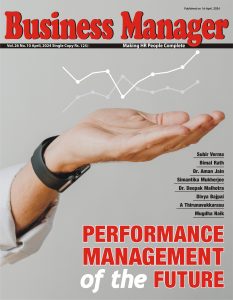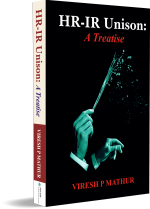Many may not have listened to the Economist Radio on Facebook. The Economist Radio carries the brand of an on-demand social listening platform. It enabled listening, sharing and perhaps endorsing the Economist audio content. Magazines like The Economist had clearly a stake in it. That’s understandable. In the present day and age most points of view which survive and circulate,ride on the shoulders of somebody who stands to gain when the objectives of the move are achieved. To facilitate this happening such person(s) often dip into their coffers. The ranking of executive MBAs is an integral part of the game. The serious thinker often, vainly, hopes that what he believes as a cause will gain currency on its own. There are several revolutions that have been kept alive and have survived because of somebody’s or groups’ vested interest in the cause.
Even Covid-19 has not been able to prevent the few business houses known to be in proximity of the powers that be–from making their unusual profits in these difficult times. There does not seem to be many apologists around either. This brings the discussion to the state of the world in the rolling era of Covid-19. Even the oil industry may have its troughs in the chain of value addition. However; in the phase of resurgent demand after the blackout of the lockdown, at least the oil refineries are doing well. The tyre industry is racing ahead – nobody quite knows how! In fact the question itself is tautological.
The same applies to the fate of education which is forever being talked about and nothing much has changed, in any real sense, at least in the domain of higher education. The University Commission which D.S. Kothari headed, lent strength to creating an Indian version of the University Grants Commission in Britain. Over 60 years down the line with multiple threats to its very existence the University Grants Commission, comfortably chugs along. It is one of those institutional wonders where almost everyone has some fault to find with it, and be it the UPA or NDA governments, nobody has got anywhere near shaking its foundations. Someday somebody will write the history of the UGC typifying how mediocre institutions survive in a sea of almost near ineptness.
The UGC has a charter of upholding the standards. Nobody quite knows what the lowest common multiple of these standards, are, cutting across, as they do, so many disciplinary faculties and so many versions of undergraduate and post graduate education. Every effort, in their operational domain, is meant to be consecrated in upholding the UGC standards. For good measure Medical education, Pharmacy, Architecture, Agriculture and some others have their own sacrosanct empires. The performance track record of their regulatory agencies is not very different from that of the UGC. This may not the best place to get into that story. It will be reasonable to assume that research outcome is one of the legitimate fallouts of the kind of ambience. UGC has tried to be nurturing and put a frame to it. Be it the sciences, engineering, law, social sciences – and the list can be added to- there is hardly any school of thought originating from India that has merited attention as a major contribution to its profession globally.
The route to fame, comfortable social ambience, political visibility and perks which go with it are still available largely to those who have first gained some recognition in some non-Indian locale to be read as that as ‘the west’.
Once someone has achieved that visibility, powers that be in the government or the corporate world shower patronage on them and such ‘distinguished’ persons visit India at personal convenience to distribute wisdom and ingratiatingly get lionised. Discipline-wise copious names can be found of dignitaries who when rejected in the Indian system migrated abroad and developed height king-size.
Is this because the Indian system is somewhat less and does not recognise talent or the Western system is something more and transforms the mediocre to a glittering icon? So much has been talked about in the last few weeks beginning 25th March that there is almost a competitive bidding for time in the webinar circle. If any webinar has discussed the achievements of the Indian system of education led by the UGC, it is one of the best kept secrets.
The proposition is simple. If the outcome of research of higher institutions has this kind of international recognition, there can be multiple reasons for it. Some of them are well known and some of them have created vested interests for keeping them outside the pail of discussions.
Taking a look at the employment outcome of higher education, the outcome is not very different. The burgeoning numbers unemployed, underemployed and aspiring to be employed–without serious credentials is a story written large on the wall. If higher education was creating focussed skills, competencies and doers to aid national development the number of aspirational applicants for each advertised job from directors to that of peons would not be so disproportionately large.
There is something not quite right in the state of education in general and higher education in particular. The least it should attempt to do is to create a cadre of graduating students who can, at least, understand and have a sense of identification with the many legitimate achievements and outcomes of higher education in the country, through its many millennia.




























